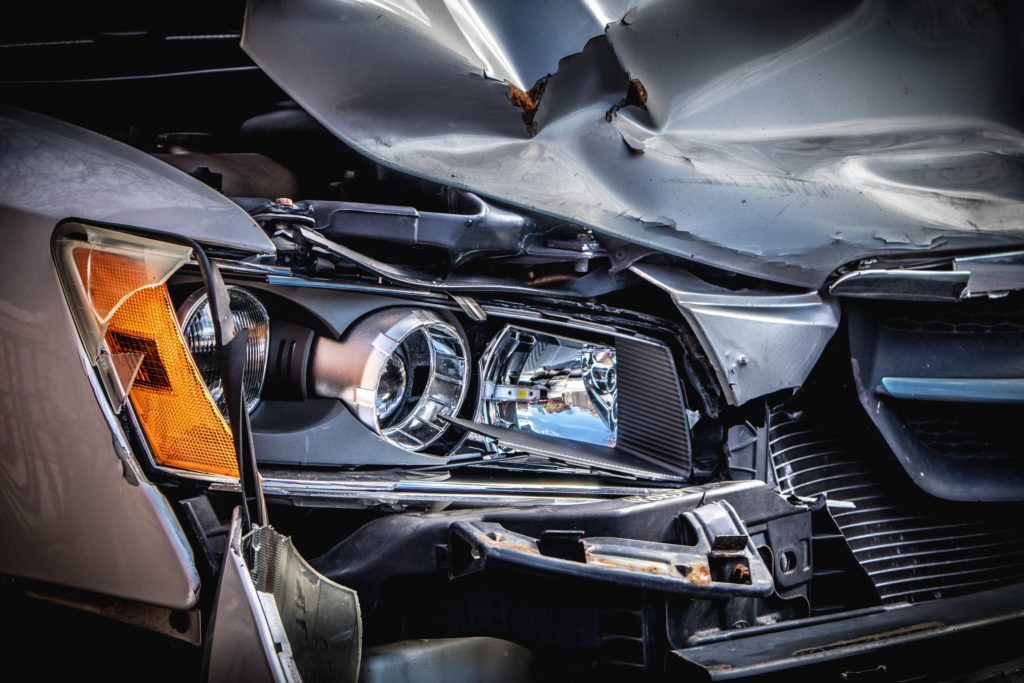
If a car is in an accident and deemed a total loss by the insurance company, the vehicle will have a salvage title. A total loss doesn’t mean a car is entirely inoperable or destroyed. It just means the cost to repair the car is more than the car is actually worth, or it is uneconomical to repair.
Having a salvage title can make it difficult to insure your vehicle. If you have a salvage title or purchased a car with one, here’s how to get a salvage title cleared in California.
Can I get rid of a salvage title on my car?
Before we get into the steps on clearing salvage titles, it’s important to note that you can’t ditch the salvage title completely. When a car is a total loss, the car will forever have the salvage title label.
However, in some cases, it is possible to have a “rebuilt title.” After taking the following steps and following the state DMV guidelines, you may be able to get a new rebuilt title for the car.
How to get a salvage title cleared with a rebuilt title
Step 1: Repair the damage to the vehicle
If you want to keep your salvage title vehicle or you’ve purchased a car with a salvage title, you need to make the necessary repairs to get it back on the road. These may be expensive, and given the salvage title, they could be more than your car is worth.
Once you repair the damage to the vehicle, you may be able to get a rebuilt title. Remember to keep track of the repairs you make, as you’ll need proof for inspections later.
Step 2: Complete the required California documentation
On top of your repairs, you’ll need to file several documents at the Department of Motor Vehicles (DMV).
First, fill out the Application for Title or Registration. This form requests a new certificate of title so that you can ditch the salvage certificate and get a new title for your car. The new title will acknowledge the salvage title history but show that the vehicle has been revived or rebuilt.
California drivers will need to have proof of ownership with a salvage title and a salvage certificate in their name. If you purchased the car from out of state, you will also need a Statement of Facts. If your vehicle is less than 20 years old, you’ll also need to provide an Odometer Disclosure Statement.

Step 3: Schedule an inspection with a California-approved inspector
As part of getting a new title, you’ll need to schedule an inspection with a California-approved inspector. Have your vehicle identification number ready for an inspection from the DMV.
In some cases, the DMV may require you to get an inspection from the California Highway Patrol (CHP). If your vehicle passes the inspection, they’ll give you a Reg 31 form, the DMV’s form for the Verification of Vehicle.
Approved CHP inspection sites
If you’re referred to the California Highway Patrol, you’ll want to have any proof of ownership documents and repair bills. The CHP also often checks vehicles that may have a high likelihood of being stolen. After passing the CHP inspection, you’ll receive a CHP 97C certificate, which is the Certificate of Inspection.
Don’t forget: You’ll also need brake, light, and smog inspections for your vehicle and the respective certificates for each inspection to prove your vehicle has passed.
If you’re referred to the CHP, here are the currently approved CHP inspection sites as listed on the CHP website:
Northern Division
2485 Sonoma Street
Redding, CA 96001-3026
Phone: (530) 242-4360
Inland Division
847 E. Brier Drive
San Bernardino, CA 92408-2820
Phone: (909) 806-2437
Valley Division
11336 Trade Center Drive
Rancho Cordova, CA 95742-6219
Phone: (916) 464-1480
Border Division
9330 Farnham St
San Diego, CA 92123-1216
Phone: (858) 492-1745
Golden Gate Division
1551 Benicia Road
Vallejo, CA 94591-7568
Phone: (510) 622-4611
Westminster Area
13200 Golden West Street
Westminster, CA 92683-2299
Phone: (714) 892-4426
Central Division
5179 North Gates Avenue
Fresno, CA 93722-6414
Phone: (559) 488-4053
Otay Mesa Inspection Facility
2335 Enrico Fermi
San Diego, CA 92154
Phone: (858) 492-1745
Southern Division
411 N Central Ave. #410
Glendale, CA 91203
Phone: (323) 644-9593
Coastal Division
4115 Broad Street
San Luis Obispo, CA 93401-7963
Phone: (805) 549-3006
Step 4: Go to the DMV
Once you complete the repairs and you have your application and completed inspections in hand, you can go to the DMV. Take the CHP 97C form to the DMV to begin the registration process, and pay a non-refundable fee as part of the application. After the DMV’s approval, it can take between four to six weeks for your new title to be mailed to you.
The bottom line
While you can’t clear the salvage title, California allows you to earn a rebuilt title to prove your car is a “revived salvage vehicle.”
While you might think you’re in the clear when you have a rebuilt title, it can still be difficult to get insured. Some car insurance companies may only offer liability coverage for your vehicle if it used to have a salvage title or may decline auto insurance coverage completely. It’s why you should make it a part of your car insurance shopping checklist to ask the insurer what their policy is.
—
Melanie Lockert is a freelance writer, podcast host of the Mental Health and Wealth show, and author of Dear Debt. She’s a cat mom to two jazzy cats, Miles and Thelonious, an amateur boxer, music lover, and needs coffee to function.
